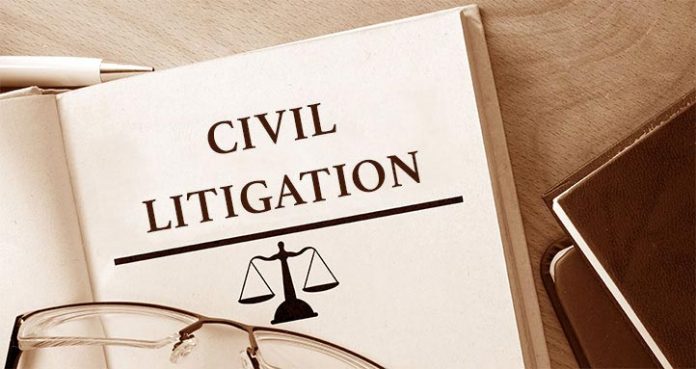By: Magna Carta Law Office
Civil Litigation is a lawsuit between persons or entities that does not involve criminal penalties. It generally includes all disputes that are formally submitted to a court, about any subject in which one party is claimed to have committed a wrongful act, but not a crime. The remedy sought in Civil Litigation is usually to recover money or a judgment that requires one party to do something or to stop certain acts.

There are many cases which may involve Civil Litigation, such as landlord/tenant cases, property disputes, business disputes, personal domestic controversies, personal injury or negligence cases, accident cases, breach of contract cases, defamation cases, medical malpractice, etc.
A typical lawsuit begins with filing a complaint in court, clearly setting out the nature of the claim, the relief sought and the allegations. Under Thai Law, the plaintiff must bring a civil case to the court where the cause of action arises or where the defendant resides. If involving an immovable property, the plaintiff has to bring a lawsuit to the court based on such property’s location, or where the defendant resides.
Once the defendant gets the complaint notice, he or she must file a written answer to the court within 15 days. The answer must clearly state his stand on every point of the complaint and what part of the claim he admits or denies. The defendant may also make a counterclaim against the plaintiff. If a counterclaim is filed, the plaintiff must answer it within 15 days from the date the answer is reached at the plaintiff.
If one is duly served with Summons and Complaint in a civil action and then fails to respond within the time limit, the plaintiff may file a motion in court to declare the respondent in default. Once in default, the court shall continue conducting the proceedings and the defendant making a default of answer may cross-examine the evidence but will lose the opportunity to defend himself or attest his own evidences on the accusations made against him.
In case a defendant making a default of answer appears in court before the court decides the case and informs the court in the first instance that he intends to defend the case, upon consideration of the court that the default of answer did not occur intentionally or occurred with reasonable excuse, the court shall allow such defendant to submit his answer within a period of time he so specifies and shall re-conduct the proceedings since the time that the defendant made default.
In case the court does not allow the defendant making default to submit an answer or the court once issued a retrial order as per request of the defendant, he shall be barred from filing request for submission of answer and request for retrial.
The Civil and Commercial Code sets statute of limitations for filing a complaint. The time in which you may file a complaint depends on the type of action or nature of the claim you are pursuing. If you fail to respect the time limitations, you will be barred from bringing an action in court. The easiest way to determine whether you have a possible claim is to consult a lawyer who can evaluate your situation and make an assessment of your claim.










